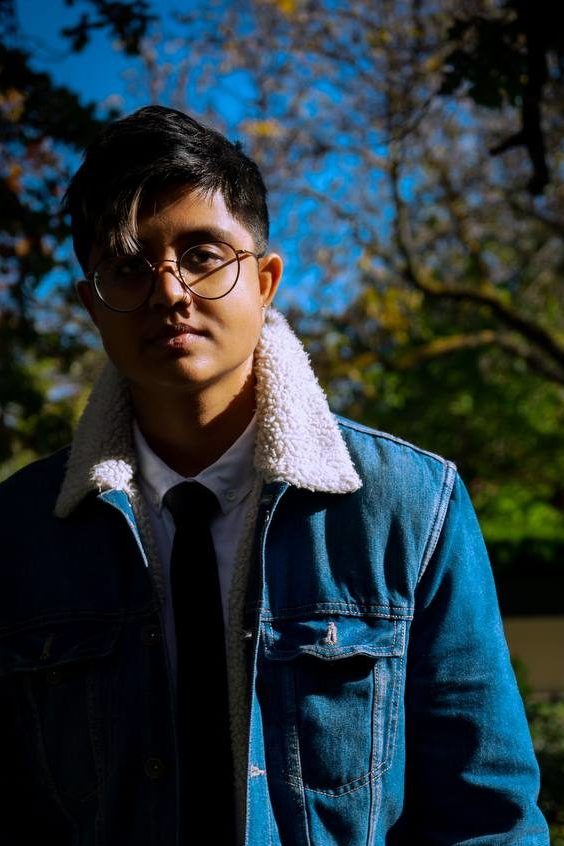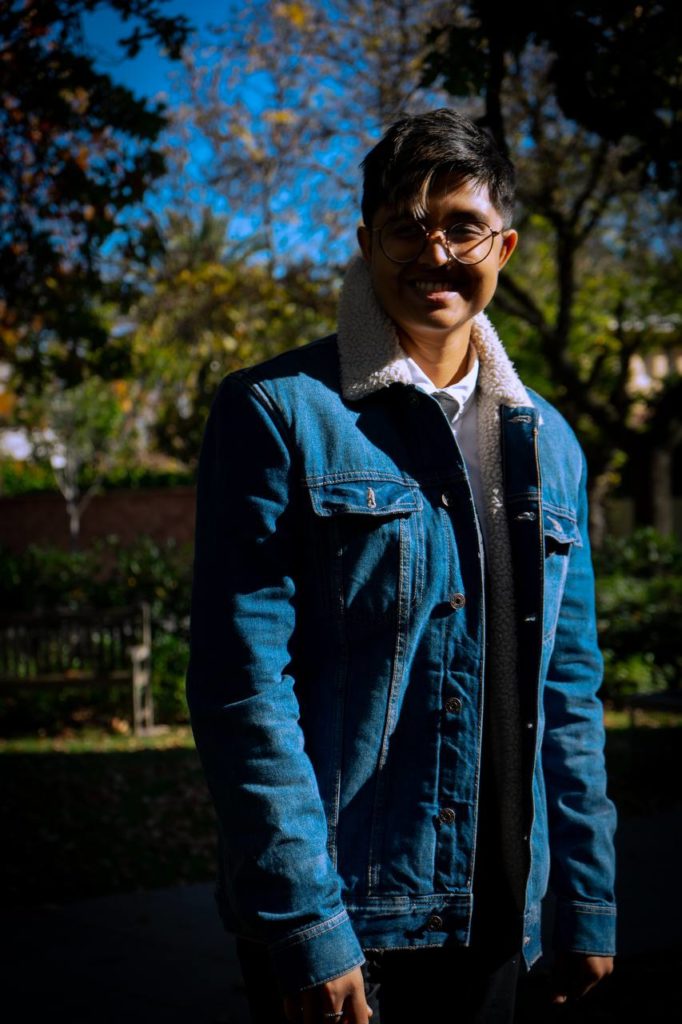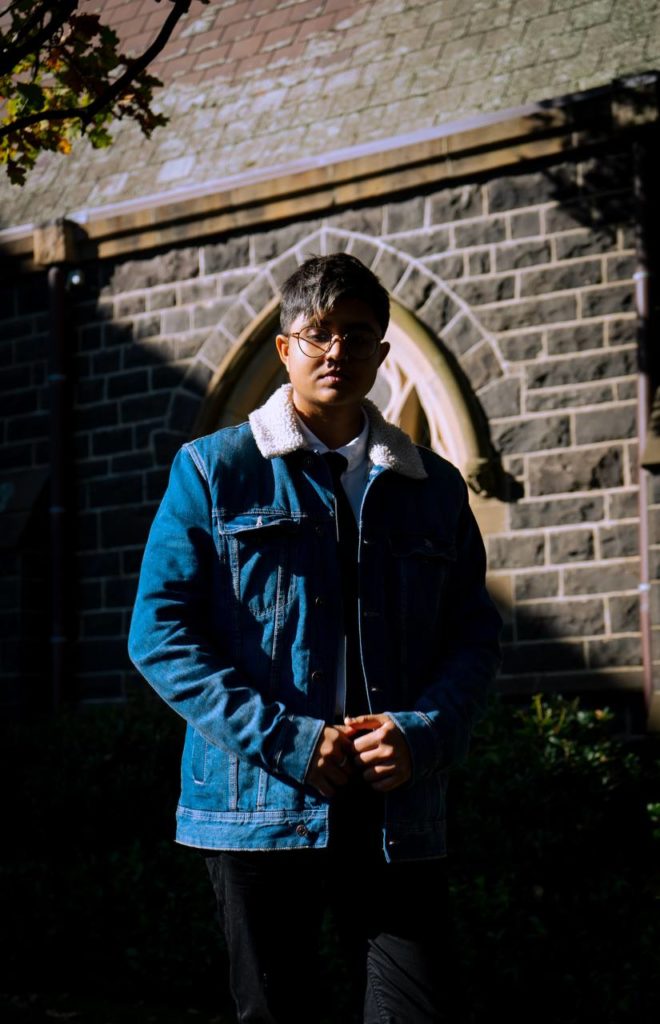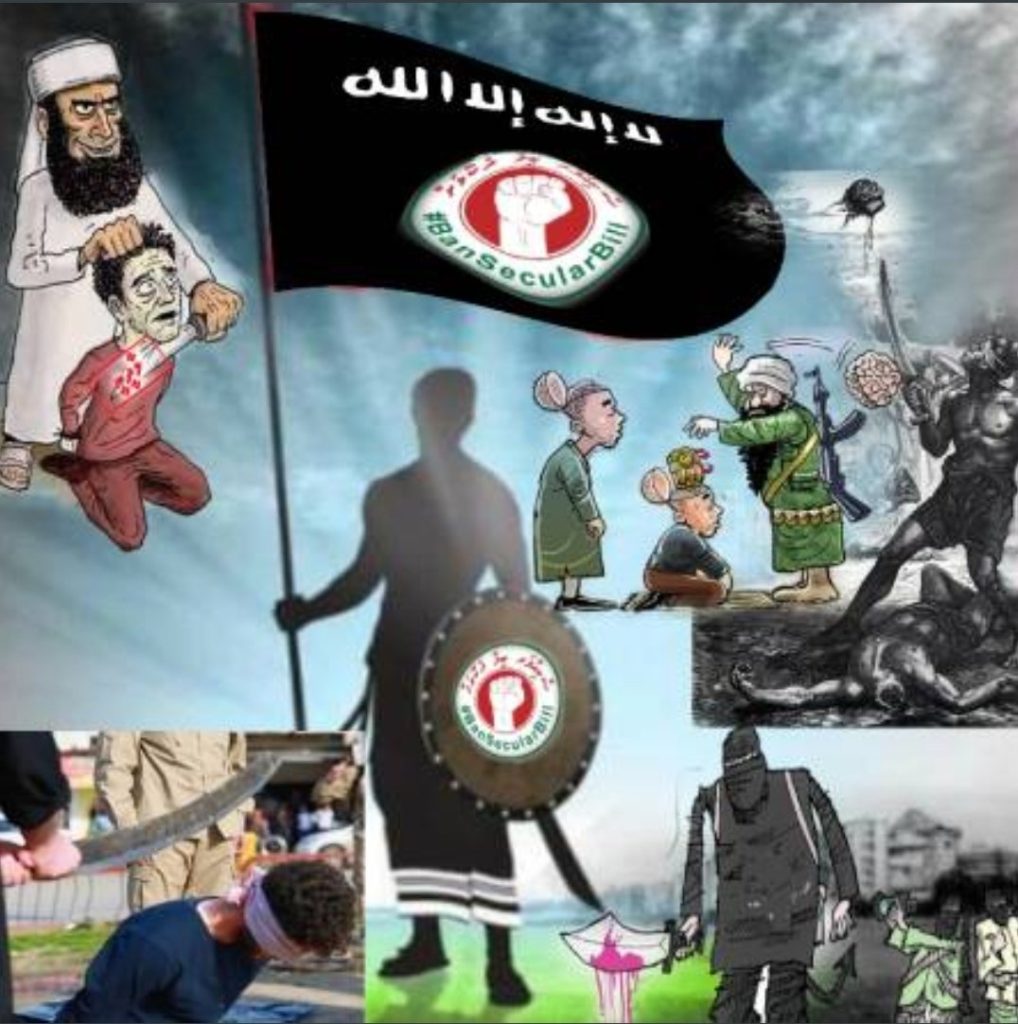Death of a nation: toxic politics is sinking Maldives
by Ibrahim Mohamed

A rendering showing connected over the water structures on an island
Maldives is among only six nations entirely made of coral atolls; composed of 1192 islands grouped into 26 natural atolls over 90 thousand kilometres, making it one of the most dispersed countries in the world. The population of 407,660 inhabit 188 islands with an area of 227 km making it also one of the most densely populated nations in the world (Duvat and Magnan, 2019). Magnan and Duvat (2019) in their study of 107 inhabited islands found that about 60 percent of them have a population growth rate exceeding 5 percent, while on 18 percent of those islands this rate is above 25 percent. They also found that anthropogenic drivers have caused rapid changes on the islands over the last decade. Consequently, the adaptive capacity of most of the inhabited and exploited islands to cope and adjust with climate change induced oceanic pressures has been highly undermined. The anthropogenic changes Magnan and Duvat highlighted as causing major destruction to the reef island system includes artificial island expansion with reclamation; hard engineered shoreline armouring; and sand mining. For instance, in the last decade islands with reclaimed areas increased by 51 percent, and the number of islands with hard engineered coastal protection more than doubled. These developments have direct impact on island coastal geomorphology, such as the destruction of reef flats, resulting in changes in sediment budget around islands and disruption of currents around the islands (Duvat and Magnan, 2019). The desire for fixed, sedentarised rapid infrastructure development with inevitable hard engineering solutions undermines the dynamic biogeophysical system’s capacity to adjust and cope with climate change induced pressures. Consequently, the biogeophysical system is pushed in to positive entropy resulting in the shifting of thresholds and tipping points to undesired states.
Environmental interventions as a trade off
The sedentarisation, permanent fixtures and hard engineering development projects involving the terraforming of the natural island systems annihilate their natural ability to repair and maintain themselves. It is an alien ontology to islandness, devaluing it as a cheap commodity to be exploited for short term benefits. Islandness is far from cheap – it is a culture and a way of life. Theoretically, islandness has been explained as a unique system of relationships underpinned by an array of sensory engagements of islanders, pertaining to their interactions with their environment (Mohamed 2020),. A major aspect of the Theory of Islandness is the non-representational dwellings perspective where the sociocultural dynamics within islands are essential for their adaptation to climate change (Mohamed, 2020). Islandness, synonymous with the local term “jazeeraa vanthakan”, is not just a way of life, but also a campaign slogan promoted by the incumbent government which pledged to make development more sustainable and environmentally sound. However, consecutive governments with their short-term planning for a five-year political term have set a trend of indulging in patronage and biopolitics with no regard to sustainable development as envisaged in Article 22 of the Maldivian Constitution which tasks the State with the responsibility to prevent destruction of natural resources. It requires development to be affected in ways that ensure intergenerational equity and environmental sustainability.
Owing to patronage politics and biopolitics at the local level, the rapid human driven anthropogenic impacts related to unsustainable development are also being shaped by a new brand of politics driven by government’s desire to demonstrate visible achievements within their short five-year term. Additionally, where the problem of island vulnerability to climate change induced impacts and absolute land scarcity is concerned, politicians view it from the perspective of patronage politics. These permanent fixtures and sedentarisation of islands at the cost of their natural dynamics is politically attractive given that the politicians can use it as an electoral incentive, and they can be displayed as symbols of development. However, the costs of undertaking dredging and reclamation as well as hard engineered armouring of coast lines is prohibitively expensive and hard to reverse. For instance, in the last decade a staggering USD 18.5 million has been spent on shore line protection of 17 islands covering 10.3 kilometers. In addition, the cost of reclamation before COVID19 Pandemic was at a rate of USD 275,000 per hectare including the cost of coastal protection of the reclaimed area, and various surveys and EIA processes. Owing to budget constraints, the government has sought development loans and contractor financing in addition to pleading with donors to cover the costs of these projects, all of which have the potential to make their political standing strong. Recently the government secured a loan of USD 71 million from the EXIM Bank of India for such a reclamation project while also securing more money through contractor finance for the same project, according to the EIA report of the project.
Flirting with the geopolitical order
Turning to donors for money and flirting with them according to domestic political interests, combined with its geopolitically strategic location, has made the Maldives relevant to the emerging new world order. The competition between China and India to increase their influence on the small island nations of the Indian Ocean, has placed these same countries in a precarious situation, while domestic politics become subjected to foreign policy divides looking to the East and the West. Owing to the maritime security interests of India in the Central and Western Indian Ocean and China’s Belt and Road initiative across the Indian Ocean, both nuclear powers are now at loggerheads on who gets to control the Indian Ocean. While China has already put Sri Lanka into a debt trap with huge loans for infrastructure, India has secured an important island of Mauritius as their foothold in the southern Indian Ocean. President Yameen, who led the Maldives from 2013 to 2018 formed close ties with his Chinese counterpart, securing financial assistance from China for various infrastructure projects including the now famous China Maldives Friendship Bridge which cost USD 220 million. The EXIM bank of China provided a loan of USD 68 million while the Chinese government granted another USD 126 million toward the bridge project. In addition, Chinese State Companies have also lent USD 421 million for upgrading Velana International Airport, the main gateway into the country. While ties with India frayed during Yameen’s leadership, the new government which defeated him came with India’s blessings in 2018 and speedily renewed the old India First foreign policy. India was eager to invest and increase trade with the Maldives. Currently, bilateral trade amounts to USD 290.27 million where the trade balance greatly favours India as of 2020 (Vashist, 2021). EXIM Bank of India also has given various loans including USD 40 million for sports infrastructure, while a staggering USD1.33 billion has been loaned for various development projects including in Addu and towards building the Greater Male’ Connectivity Bridge (Vashist, 2021). For India, ties with Maldives is critical given that 50 percent of India’s exports and 80 percent of its energy imports are transported through maritime routes within the Maldives. Moreover, the Indian foreign and military vision for an inclusive Security and Growth for All in the Region (SAGAR) requires a strong alliance with the Maldives. Consequently, the current government has abandoned romancing with China and is sinking inexorably into a sea of Indian debt. Opposition politicians have begun their dog whistling against the incumbent regime consistently, using the slogan of “India Out” to mobilize opposition supporters against the government.
Debt bounty of economic warfare
Colonization and conquest of nations in the 21st century has unfolded under a new brand of war. War on terror or war for democracy, depending on where you stand. Most recent wars, while waged under such banners, have also exploited wealth and resources. For instance, crude oil, rare earth metals and other resources of victim nations become the bounty of their “saviors” to be pillaged and exploited with the western world view of nature as a cheap commodity. Such wars have caused huge losses to natural resources and transformed environments rapidly. On a par with such wars is the debt fed to incumbent regimes by larger economic powers, allowing them to strengthen their political competitiveness. The debt money is often used to make visible infrastructure for patronage politics. The huge undertakings of such infrastructure in the guise of development often results in maladaptation and destruction of natural resources, trapping the local communities in a vicious cycle of dependency for politicians. When the common pool of resources available for all, such as coral reefs, are destroyed for development, people lose their economic freedom and have to depend on predatory capitalism and political patronage for survival. It is precisely this type of capitalism that underpins the 50-year-old tourism industry of the Maldives where local communities benefit little from the billions of dollars generated by high end resorts.
Neocolonial geopolitics and predatory capitalism versus biopolitics.
The land reclamation of Addu is a major concern, and scientific wisdom puts it under the precautionary principle. The only decision tool for the environmental consideration of such developments is the Environmental Impact Assessment report which, despite being heavily watered down, shows clearly the inevitable loss of our environmental inheritance were the project to go ahead. The sheer scale of dredging it requires in a relatively small atoll will have devastating consequences on the environment, with rapid transformation of the entire atoll’s biogeophysical system.
Addu has always been the sacrificial lamb for the elitist ruling class of the Maldives. The atoll is critically positioned at the very southern end of Maldives, making it invaluable in the event of warfare in the east and middle east. This makes Aduu attractive to any international actor with intentions of war or other maritime security interests. The biggest achievement of the incumbent regime has been the large cash windfall from India for allowing Maldives to become a part of India’s SAGAR vision. Given how much Maldives is in debt to China, the influx in cash from India has allowed the Maldives to avoid the same conditions that have hit neighboring Sri Lanka once China called in the debts. Crucially, this has also allowed the current government to stay in power. India has moved rapidly to establish itself in the strategic Addu, pushing the government to undertake large development projects in the atoll that strengthens Indian presence in the area. One such project is the land reclamation for Addu. Despite having the potential to become maladaptive, this project is being driven forward partly due to the availability of a huge loan from India and Indian political pressure on the incumbent regime. The biopolitics used as such a destructive means to an end may be tenable in the short term, but the irreversible damage done to the environment will have major consequences for generations to come. In a contemporary world on the precipice of great conflict, climate induced disasters and being caught in a debt trap, will not only create political chaos, it will also set the Maldives on the path to a dire future.
(Un)Doing Development
Development in the Maldives is often about the un: unbalanced, uncertain, undesirable, unfit, unjust, unhealthy, unplanned, unrepresented, unsustainable and unsystematic. This tendency for (un)doing appears soon after major infrastructure projects are commissioned. An example are the social housing towers recently constructed on the island of Hulhumale’ . What was envisaged as a remedy for crowding has also come with the seemingly unexpected ‘side effects’ such as ghettoization and a sharp rise in social inequity. The focus on patronage politics in the development agenda means gaps remain in both legal and planning aspects. .Given the partisan environment of Maldivian politics and the tendency to put party before nation, the sustainable development envisaged in Article 22 of the Constitution becomes impossible within a five-year term. For sustainable development, envisaged in the Article 22 of the Constitution of the Maldives, a political term of five years is insufficient. What political parties and elected leaders aim for is to make development as visible as possible within those five years. Concrete thus becomes their favored choice to showcase their achievements. . For instance, paved roads, airports, hospital buildings, land reclamations, harbor development and many other concrete based infrastructures are erected to display as achievements against rival politicians. Consequently, scientific wisdom, nature and economics is often undermined or traded off to favor the most politically attractive options. For instance, development criterions are invented and manufactured as electoral incentives during elections, often with no regard to island needs and necessities or context. For instance, the majority of lands reclaimed in the past decade remain barren and unused, even though a land use plan is approved before the reclamations.
For centuries, Maldivians relied on the sea for their sustenance. Fishing and seafaring is still considered as the primary economic activity. Until tourism became the major driver of economic growth, trading among islands was also common among the dispersed islands. The vulnerability and exposure and the low biogeophysical thresholds in the natural system of the tiny islands of the Maldives makes it senseless to create human settlements akin to mini-Dubais in the Maldives. However, short sighted politicians with five-year targets sell Maldivians the vision of development as epitomized by Dubai, that Mecca to capitalism once alien to the island culture and environment of the Maldives. The Maldives does have poor soil and scarce freshwater in common with Dubai, but that’s where the similarities end. For one thing, it does not have the financial capacity to transform into a real estate haven for international markets. From a sustainability point of view, especially with climate change projections related to coastal hazards, making human settlements and tourism products with reclamations is untenable.
Utopian dreams of climate smart islands
The dredging company which won the contract to protrude more land in to the reef edge of Addu Atoll by burying coastal ecosystems, envisions transforming Addu city into a utopian climate smart economic hub to attract a particular type of traveler. This illusory comprehensibility of predatory capitalism which undervalues environment and ecosystem services as cheap by separating humans from the rest of the interconnected web of life is a western ideology alien to centuries old culture and islandness of the Maldivians. The spatiality of islands is a lure for “on-and off-island power holders” to manipulate them economically, socially and politically (Baldacchino, 2010 and Grydehøj, & Kelman, 2016), especially when the geopolitical stakes are high. Consequently, for predatory capitalists, islands are suitable spaces for political and economic maneuvering and environmental exploitation (Grydehøj, & Kelman, 2016). Terms such as “climate smart”, and “economically viable” are often coined by governments and investors for reaping economic benefits, while neglecting various social issues such as equal and equitable accessibility, social justice and economic freedom as well as ghettoization and widening of gaps between rich and poor (Grydehøj, & Kelman, 2016). The creation of land by filling coastal regions adjacent to islands also opens up the possibility to create exceptional regulatory spaces like special tourism zones which may favour the corporate elite while adjacent island communities may lose their economic freedom due to over-dependency on rich investors who will own the spaces for over 50 years. Consequently, reclaiming land through debt money is a freebie for global corporate elitists to take advantage and grab land at the behest of current and future generations who will pay for these debts.
Conclusion
With the looming threats of climate change impacts and frequency of cyclones and storms developing in the Indian ocean, as well as food insecurity where ship to mouth is the norm, Maldives needs a respite. Even though climate change induced coastal hazards have increased, the impact is yet to become severe. Hence innovative ideas which enhance sustainability of islands are essential. The coastal and marine systems and the socio ecological systems of most inhabited and exploited islands are gradually reaching their tipping points. Hence, we need transformative innovations where technology is fully utilized. We must create hybrid solutions by working with nature-based solutions and hard and soft engineering. Instead of reclaiming and fortifying with hard armoring, we need to explore how we can enhance our islands’ ability to retrieve and accommodate for climate change induced hazards. We need to create and recreate edge conditions and explore the possibilities of developing over the water structures with minimal impacts on coastal geomorphology and ecology. It is time our policy makers accept that tradeoffs for politically attractive options have already undermined the capacity of most inhabited islands to cope and adjust with climate change. Consequently, we have to fight a constant battle against nature, which results in a huge financial burden. We can transform our islands by safe, small-scale hybrid, nature-based solutions and garner adaptation finance for such projects. We must become more flexible to building adaptive pathways instead of relying solely on hard engineered fixtures against the natural dynamics of our islands.
References
Baldacchino, G. (2010). Island enclaves: Offshoring strategies, creative governance, and subnational island jurisdictions (Vol. 14). McGill-Queen’s Press-MQUP.
Duvat, V. K., & Magnan, A. K. (2019). Rapid human-driven undermining of atoll island capacity to adjust to ocean climate-related pressures. Scientific reports, 9(1), 1-16.
Grydehøj, A., & Kelman, I. (2016). Island smart eco-cities: innovation, secessionary enclaves, and the selling of sustainability. Urban Island Studies, 2, 1-24.
Mohamed, I., King, D., & Cottrell, A. (2020). Adaptive Capacity for Climate Change in Maldivian Rural Communities. International Journal of Social Research & Innovation, 4(1).
Vasisht, C. (2021). India-Maldives Policy Brief. Vivekanda International Foundation. New Delhi. [accessed from: https://www.vifindia.org/sites/default/files/India-Maldives-Policy-Brief.pdf].
[photo credits and renders: Margret Ikeda and Evan Jones and the author]
Ibrahim Mohamed has a doctorate in Environmental Science and Management from James Cook University, Australia. He is a specialist in environmental social science related to climate change adaptation focused on small low-lying islands. He has a research interest in climate change impacts on small island communities and adaptation for post sea-level rise scenarios. He has published in various aspects related to climate change adaptation and mitigation in small island nations.




